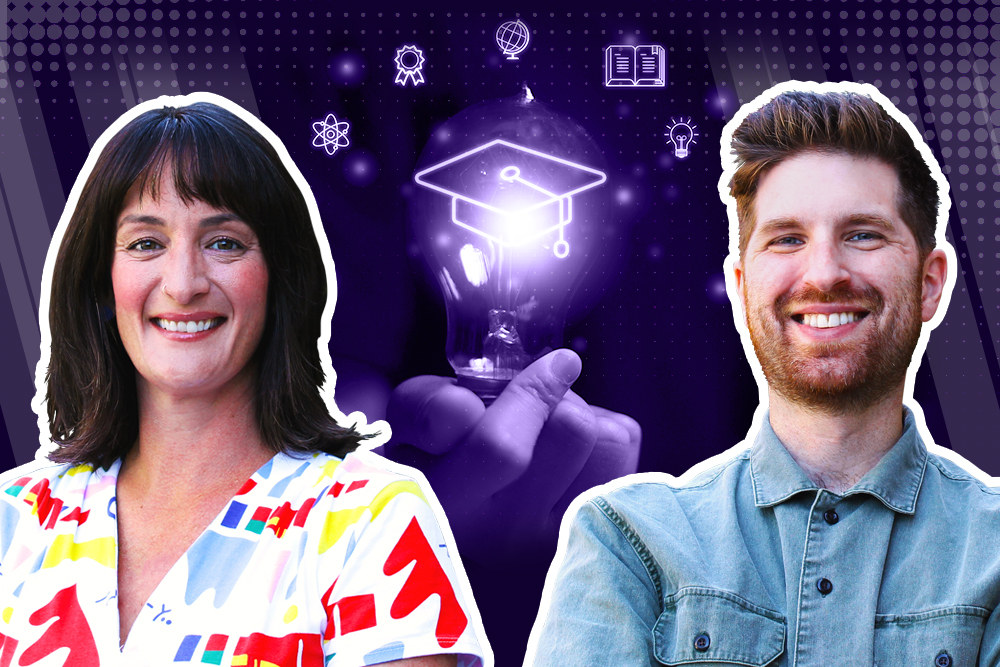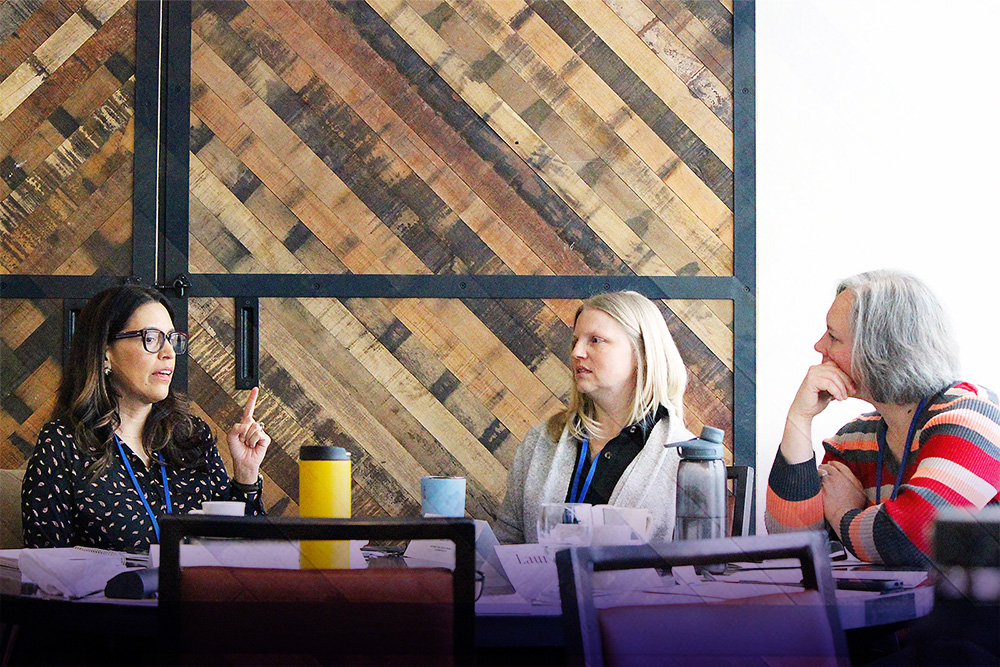
Erica Ellis led an in-person adult learning training
The Special Supplemental Nutrition Program for Women, Infants, and Children (WIC) is a federally funded program that provides food, nutrition education, breastfeeding support, and health and social service referrals to pregnant women, new parents, and other caregivers of children under the age of five. WIC eligibility depends on household size and income.
Sarah Gregory is a Public Health Nutritionist with the Hawaii State Department of Health. She helps oversee the state’s WIC program, which spans nearly fifteen clinics over several islands. As Sarah reviewed her program’s effectiveness, she saw an opportunity to better serve WIC participants.
“We realized that a lot of our staff were very knowledgeable about teaching children, but not necessarily adults,” Sarah explained. “We wanted to improve our reach by connecting better with our adult participants, so we began looking for someone who could teach our staff how adults learn.”
Sarah reached out to the Northwest Center for Public Health Practice, where she connected with Erica Ellis. As an instructional designer, Erica has a strong background in adult learning theory. This summer, she traveled to Hawaii and led a two-day seminar on adult learning for the local WIC staff.
“Adult learners have different needs than children,” Erica explained. “When you’re teaching kids, content is usually the most important aspect. But when you’re working with adults, you need to take a more functional approach. You have to consider what motivates adults and what problems they’re trying to solve.”
“Adults also have more life experiences than children, and it’s important to factor in those existing experiences and build on what they already know,” Erica said. “Adults usually learn better with hands-on teachings, and they respond best when their diverse backgrounds are respected and incorporated.”
In addition to presenting a theoretical grounding, the training Erica provided also focused on using empathy to better understand and serve WIC participants. “One of the distinct challenges staff in Hawaii reported was working with clients who have limited literacy or limited English proficiency,” Erica noted. “In situations like that, it’s really important to make sure that the tools and resources being offered are accessible across these different modalities.”
During the training, Erica helped staff explore their own learning styles and led them through several exercises to create a learner persona. “Learner personas are fictional profiles of typical clients,” Erica stated. “By imagining the life of their clients, staff are encouraged to approach actual clients with curiosity and empathy. Personas are also a great way to incorporate holistic DEI concepts, and this can ensure that the needs of a variety of participants are being met.”
“Erica’s presentation was really well done,” Sarah said. “She incorporated movement and made learning interactive, so we didn’t spend our days just sitting around listening to lectures. She did a great job connecting with our staff, who really bonded throughout these two days.”
“This training helped guide our staff on the best ways to successfully engage with our adult clients. Erica’s emphasis on empathy was very impactful, and I’m confident this training will improve the services we provide.”
To learn about how adult learning theory can improve the quality of services your organization provides or to bring this training to your team, contact Barb Rose.


